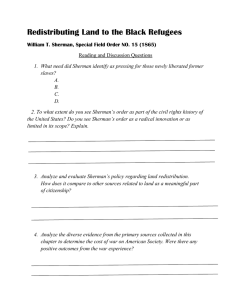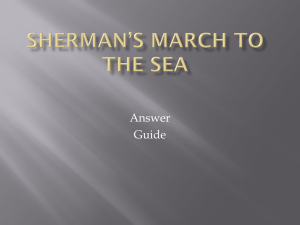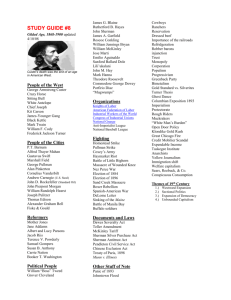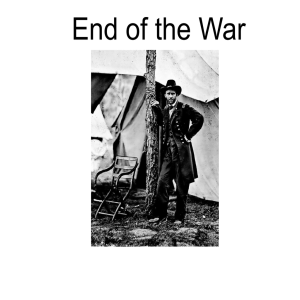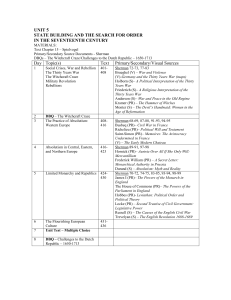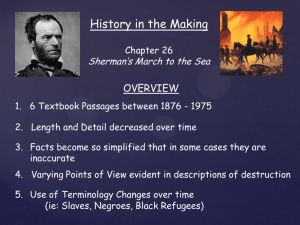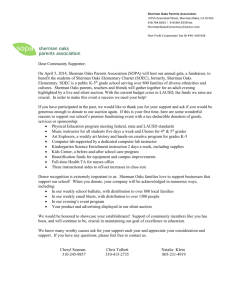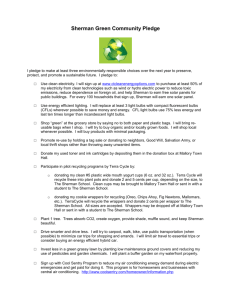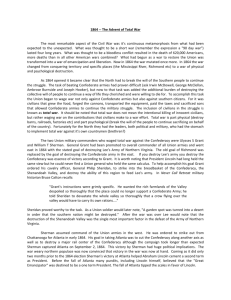Sherman
advertisement
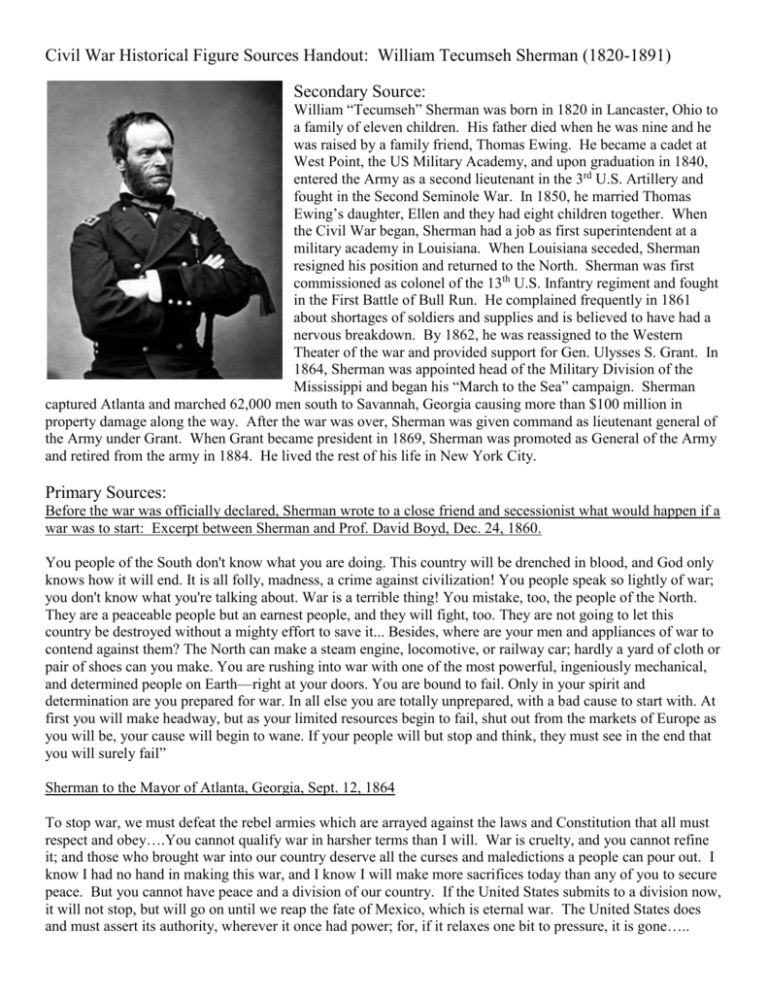
Civil War Historical Figure Sources Handout: William Tecumseh Sherman (1820-1891) Secondary Source: William “Tecumseh” Sherman was born in 1820 in Lancaster, Ohio to a family of eleven children. His father died when he was nine and he was raised by a family friend, Thomas Ewing. He became a cadet at West Point, the US Military Academy, and upon graduation in 1840, entered the Army as a second lieutenant in the 3rd U.S. Artillery and fought in the Second Seminole War. In 1850, he married Thomas Ewing’s daughter, Ellen and they had eight children together. When the Civil War began, Sherman had a job as first superintendent at a military academy in Louisiana. When Louisiana seceded, Sherman resigned his position and returned to the North. Sherman was first commissioned as colonel of the 13th U.S. Infantry regiment and fought in the First Battle of Bull Run. He complained frequently in 1861 about shortages of soldiers and supplies and is believed to have had a nervous breakdown. By 1862, he was reassigned to the Western Theater of the war and provided support for Gen. Ulysses S. Grant. In 1864, Sherman was appointed head of the Military Division of the Mississippi and began his “March to the Sea” campaign. Sherman captured Atlanta and marched 62,000 men south to Savannah, Georgia causing more than $100 million in property damage along the way. After the war was over, Sherman was given command as lieutenant general of the Army under Grant. When Grant became president in 1869, Sherman was promoted as General of the Army and retired from the army in 1884. He lived the rest of his life in New York City. Primary Sources: Before the war was officially declared, Sherman wrote to a close friend and secessionist what would happen if a war was to start: Excerpt between Sherman and Prof. David Boyd, Dec. 24, 1860. You people of the South don't know what you are doing. This country will be drenched in blood, and God only knows how it will end. It is all folly, madness, a crime against civilization! You people speak so lightly of war; you don't know what you're talking about. War is a terrible thing! You mistake, too, the people of the North. They are a peaceable people but an earnest people, and they will fight, too. They are not going to let this country be destroyed without a mighty effort to save it... Besides, where are your men and appliances of war to contend against them? The North can make a steam engine, locomotive, or railway car; hardly a yard of cloth or pair of shoes can you make. You are rushing into war with one of the most powerful, ingeniously mechanical, and determined people on Earth—right at your doors. You are bound to fail. Only in your spirit and determination are you prepared for war. In all else you are totally unprepared, with a bad cause to start with. At first you will make headway, but as your limited resources begin to fail, shut out from the markets of Europe as you will be, your cause will begin to wane. If your people will but stop and think, they must see in the end that you will surely fail” Sherman to the Mayor of Atlanta, Georgia, Sept. 12, 1864 To stop war, we must defeat the rebel armies which are arrayed against the laws and Constitution that all must respect and obey….You cannot qualify war in harsher terms than I will. War is cruelty, and you cannot refine it; and those who brought war into our country deserve all the curses and maledictions a people can pour out. I know I had no hand in making this war, and I know I will make more sacrifices today than any of you to secure peace. But you cannot have peace and a division of our country. If the United States submits to a division now, it will not stop, but will go on until we reap the fate of Mexico, which is eternal war. The United States does and must assert its authority, wherever it once had power; for, if it relaxes one bit to pressure, it is gone…..

